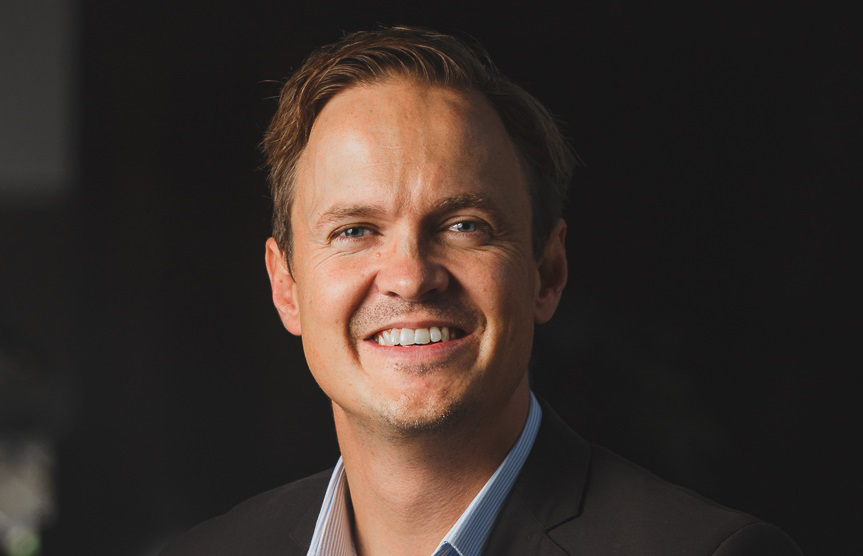Mark Elliott
Since the outbreak of the Covid-19 pandemic, South Africans have become more environmentally conscious and have committed to reducing their carbon footprint by making more responsible decisions. These encouraging findings are from Mastercard’s latest sustainability research.
Mark Elliott, Division President of Mastercard Southern Africa, shared the key findings from this research during a Mail & Guardian and Mastercard webinar held recently under the theme: “How to create a network effect: planting trees to fight climate change”.
 Adriana Marais
Adriana Marais“Climate change impacts you regardless of who you are. But the effects on those who are socially or economically disadvantaged could actually be catastrophic. This is why we created the Priceless Planet Coalition to inspire change, not only in terms of climate change, but also to be a force for good for people; to ensure that people, businesses, and communities can thrive,” said Elliott.
The webinar explored how partnerships such as Mastercard’s Priceless Planet Coalition can mobilise South Africans to take action on climate change issues as their personal attitudes toward the environment evolve.
It also emphasised the importance for stakeholders to take a stand and create innovative ways to inspire collective action to address the ongoing climate crisis.
According to the findings of the sustainability research, the majority of the respondents in the survey showed a “marked increase in consumer passion for the environment”. In South Africa, 98% of adults stated they’re willing to take personal action to combat environmental and sustainability issues as compared to 85% globally The vast majority (81%) of South African respondents are even more mindful of their impact on the environment since Covid-19, with the trend being led by Gen Z (89%).The trend is also being led by women, who made up 59% of the respondents who were willing to take up personal action. Further to this, social media appears to be driving more of this environmentally conscious consumer mindset, with 52% of respondents seeing information about climate change on social media channels.
Priceless Planet Coalition
Mastercard’s Priceless Planet Coalition is a network of companies, experts, sustainability organisations and consumers who have united to plant 100-million trees by 2025 to counter deforestation and reverse the impact of climate change.
 George Okwaro
George OkwaroDuring the webinar, which took place during Arbor Week (1-7 September), Elliot informed the delegates that planning is already underway to restore 1.2-million trees in Kenya’s Makuli Nzaui landscape, home to two major forests. Reforestation and restoration efforts have also commenced in Brazil’s Amazon and Atlantic forests, as well as in Australia’s Southern Tablelands and in Western Sydney.
He reiterated that as a technology company, Mastercard has always been focused on interconnectivity, and this is a powerful moment in time for building a sustainable society, economy and planet, which is what the Priceless Planet Coalition hopes to achieve.
The Coalition is guided by organisations such as Conservation International and the World Resources Institute (WRI), which is providing technical support and scientific expertise.
During the webinar, George Okwaro, Forester and Kenyan Associate at the WRI, said the coalition brings together financial resources and experts to do something about climate change.
“Climate change is a consequence and a cause. It is a consequence in the sense that we’ve degraded our lands and have reduced our forests. The proliferation of wildfires has contributed to the emissions of greenhouse gases, and as a result of human activity, we are experiencing weather patterns that are not common to us,” said Okwaro.
He said this includes long droughts and other extreme weather events. In sub-Saharan Africa, this precipitates food insecurity as well.
Climate change a global emergency
 Michael Avery moderated the webinar
Michael Avery moderated the webinarDr Adriana Marais, a theoretical physicist, technologist and advocate for off-world exploration, who was also part of the webinar, said that it will take a concerted effort to effect behavioural change. If this does not happen, we can expect more pandemics such as the Covid-19 pandemic in the future.
“The biosphere is what sustains us. We are a very small part of this network. Humans need to consider how many resources they really need. How much do we need to be functional and happy, and can the planet support our lifestyle?” said Marais. She added that the pandemic has reminded us how interconnected the world is, and how each of us is affected by events happening in other parts of the world.
The webinar comes in the wake of the latest Intergovernmental Panel on Climate Change (IPCC) report. The IPCC is a body of scientists convened by the United Nations. The IPCC report stated that global warming is now an inevitability, but that humans can still intervene to prevent the worst-case scenario.
Extreme weather will increase in the next two decades, but a co-ordinated effort by all countries to stop adding carbon dioxide to the atmosphere by 2050 could prevent the earth from warming to more than 1.5 degrees Celsius, The New York Times reported. — Sarah Evans